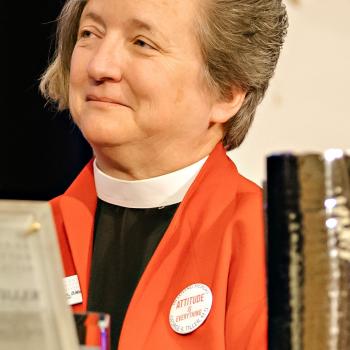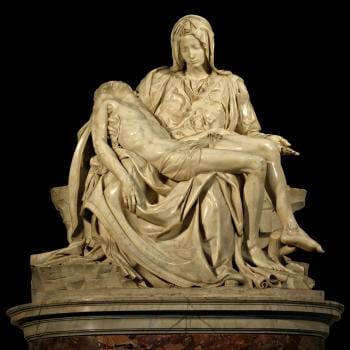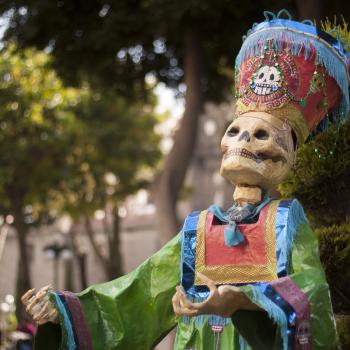 We celebrate this week the life of that most famous of sinner-saints, St Augustine, who said, “Lord make me chaste, but not yet.” Augustine’s lust for love and his desire for God are tied together with his passionate approach to life. “Love is the beauty of the soul!” he cries.
We celebrate this week the life of that most famous of sinner-saints, St Augustine, who said, “Lord make me chaste, but not yet.” Augustine’s lust for love and his desire for God are tied together with his passionate approach to life. “Love is the beauty of the soul!” he cries.
What Augustine teaches us is the practical joy of repentance. Repentance is simply the heart felt realization that one is a sinner. So often this realization is linked with guilt–as if feeling guilt is a bad thing. But guilt is simply the pain one feels at the realization of the deep wound of sin. If I have cancer and feel pain a good doctor tells me I have cancer and I need an operation and that may cause me more pain, but it also brings me to face reality and brings me to the point of a possible cure. The pain was therefore a necessary evil. So guilt reminds me of the cancer of sin in my life and that I need the radical surgery from Doctor Jesus to be healed.
That transaction takes place through repentance. When I say “I’m sorry” I become most fully real because I am facing reality. When I say “Mea Culpa–It’s my fault” I achieve freedom. When I cease to blame others and say “What’s wrong with the world: I am.” I am taking responsibility and when I take responsibility I take charge. My will is engaged. I am suddenly mature and fully human.
This is why repentance is joyful–because I am facing reality and accepting freedom. Repentance requires humility, and another quote of St Augustine’s is, “Do you wish to rise? Begin by descending. You plan a tower that will pierce the clouds? Lay first the foundation of humility.” This action has built into it our need for God, for why would we repent unless we were asking forgiveness and why ask for forgiveness unless we trusted in the only one who has power to forgive? This step of humility is also a step of good humor, for when we know we are weak we are most strong, and that paradox is a joyful, hilarious realization.
Repentance also lays the foundation for experiencing the truth. When we repent we admit that we know nothing and it is only at the point that we admit that we do not know that we can begin to learn what we do not know and then learn what we need to learn. Repentance is growth. The Eastern Orthodox teach that the soul is closest to God not when he is receiving consolations or is experiencing some great miracle or wonder, but it is when he truly and honestly utters the words, “Lord Jesus Christ, Son of God, Have Mercy on me a Sinner.” At that point the soul takes a great leap towards God and is then the closest to his love.
Before this moment of realization and return, before this moment of repentance our hearts are restless–always searching for an answer and yet at the same time always running from the answer, for our hearts are truly restless until they rest in God, and that rest in God can only come on the other side of repentance. Then the soul is not only at rest, but it enjoys a quiet and joyful rest that is the radiance of the Divine Mercy.












